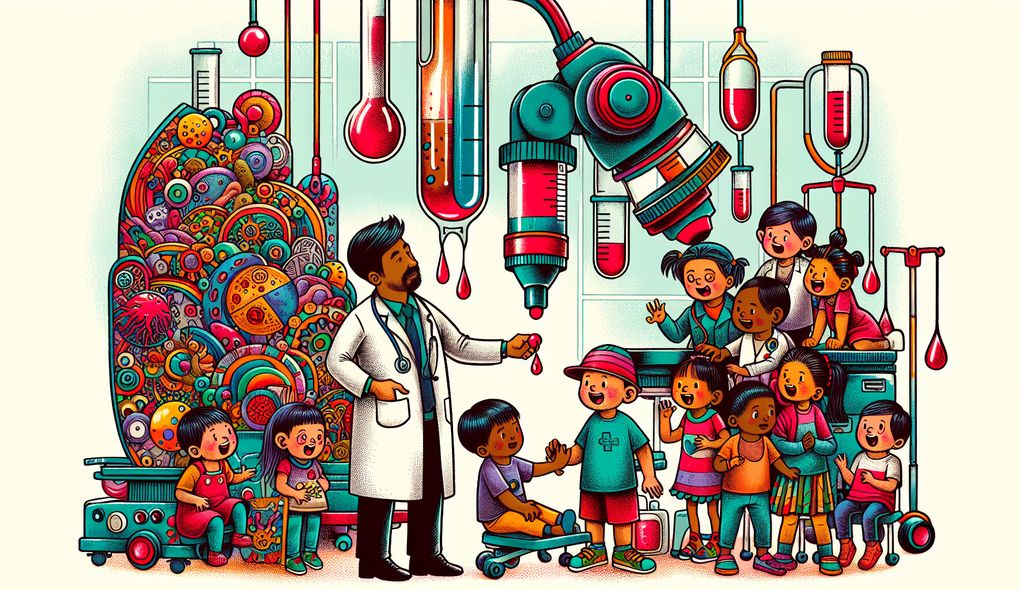Tell me about your long-term professional goals as a pediatric hematologist/oncologist.
JUNIOR LEVEL

Sample answer to the question:
My long-term professional goal as a pediatric hematologist/oncologist is to make a positive impact in the lives of children and adolescents affected by blood disorders and cancer. I want to provide specialized care and treatment while ensuring that my patients and their families feel supported and well-informed throughout their journey. I also aim to contribute to the advancement of pediatric hematology and oncology through research and participation in clinical trials. Additionally, I aspire to become a leader in the field, collaborating with other healthcare professionals to improve the quality of care and outcomes for young patients.
Here is a more solid answer:
My long-term professional goals as a pediatric hematologist/oncologist revolve around continuously improving my clinical skills in the field. I plan to participate in ongoing medical education and attend conferences and seminars to stay up-to-date with the latest advancements in pediatric hematology and oncology. Additionally, I aim to collaborate effectively with other healthcare professionals by actively participating in multidisciplinary teams. I recognize the importance of strong problem-solving and critical thinking skills in this field, and I will actively seek opportunities to further develop these skills through case discussions and research projects. Furthermore, I understand the importance of clear and effective communication with patients and their families. I will strive to enhance my verbal and written communication skills to ensure that I can explain complex medical information in a way that is easily understood by non-medical audiences. Lastly, I am dedicated to making informed decisions in high-pressure situations by staying calm, thoroughly analyzing the available information, and seeking input from experienced colleagues when necessary.
Why is this a more solid answer?
The solid answer expands on the basic answer by providing specific details on how the candidate plans to improve their clinical skills, collaborate effectively with healthcare professionals, enhance problem-solving and critical thinking skills, improve communication skills, and make decisions in high-pressure situations. However, it could still benefit from more specific examples or experiences related to these goals.
An example of a exceptional answer:
In my long-term professional goals as a pediatric hematologist/oncologist, I am committed to becoming a recognized expert in the field. I plan to publish research articles in reputable medical journals and present at national and international conferences to contribute to the scientific knowledge base of pediatric hematology and oncology. Additionally, I aspire to take on leadership roles in clinical trials, contributing to the development of innovative treatments and therapies. I also aim to mentor and educate future generations of pediatric hematologist/oncologists by actively participating in medical education programs and residency training. In terms of patient care, I will strive to establish strong, trusting relationships with my patients and their families, ensuring that their emotional and psychological well-being is prioritized alongside their medical treatment. Finally, I intend to engage in advocacy efforts to raise awareness and support for pediatric hematology and oncology research, working alongside patient organizations and policymakers to drive positive change for young patients.
Why is this an exceptional answer?
The exceptional answer goes above and beyond by outlining specific goals related to becoming a recognized expert in the field through research and leadership roles in clinical trials, mentoring future pediatric hematologist/oncologists, prioritizing the emotional well-being of patients and families, and engaging in advocacy efforts. The answer demonstrates a comprehensive understanding of the role and responsibilities of a pediatric hematologist/oncologist.
How to prepare for this question:
- Research the latest advancements in pediatric hematology and oncology to demonstrate your dedication to ongoing medical education during the interview.
- Highlight any experience you have working in multidisciplinary teams and emphasize your ability to effectively collaborate with healthcare professionals.
- Practice explaining complex medical information in a clear and concise manner to non-medical audiences to showcase your communication skills.
- Prepare examples of high-pressure situations you have faced in the past and how you made decisions under pressure.
- Be ready to discuss any research or publications you have been involved in, as well as your interest in contributing to clinical trials and advancements in the field.
What are interviewers evaluating with this question?
- Clinical skills in pediatric hematology and oncology
- Teamwork and coordination with healthcare professionals
- Problem-solving and critical thinking skills
- Verbal and written communication skills
- Dedication to ongoing medical education and professional development
- Ability to make decisions in high-pressure situations

